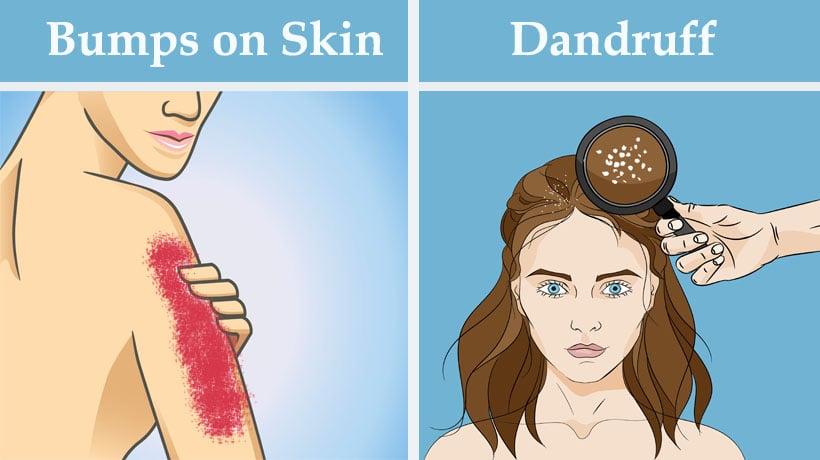A diet lacking in essential vitamins can cause a variety of unpleasant symptoms. These symptoms are your body’s way of communicating potential nutrient deficiencies, and recognizing them can help you adjust your diet accordingly.
Symptoms are usually the first clue that you are low in one or more important vitamins or minerals. Here are a few ways to recognize common nutrient deficiencies.
Brittle hair and nails
Biotin, also known as vitamin B7, helps the body convert food into energy. A deficiency in biotin is very rare, but when it does occur, symptoms include thinning or splitting hair and nails, chronic fatigue, muscle pain, cramps and tingling in the hands and feet.
Mouth ulcers or cracking
Mouth ulcers, also commonly referred to as canker sores, are often the result of deficiencies in iron or B vitamins. People with mouth ulcers or cracks at the corners of the mouth may want to try consuming more foods rich in thiamin, riboflavin, pyridoxine and iron to alleviate symptoms. These can include whole grains, animal produce, legumes, green vegetables, starchy vegetables, nuts and seeds.
Bleeding gums
Bleeding gums or even tooth loss can be the cause of a diet lacking in vitamin C. The nutrient plays important roles in wound healing, immunity and preventing cell damage. The human body does not make vitamin C on its own, which means the only way to get it is through the diet, especially through fruits and vegetables. Other serious consequences of severe vitamin C deficiency are scurvy, easy bruising, a slow wound healing pace, dry skin and frequent nosebleeds.
Vision problems
Low vitamin A intake may cause poor night vision or growths on the white part of the eyes. However, note that unless diagnosed with a deficiency, most people should avoid taking vitamin A supplements because it can be toxic in excess.
Scaly patches and dandruff
Dandruff and scaly patches on the scalp, eyebrows, ears, eyelids and chest may be caused by low intake of zinc, niacin, riboflavin and pyridoxine. Foods rich in these nutrients include whole grains, animal products, green vegetables, starchy vegetables, nuts and seeds. When added into your diet, these nutrients may help reduce symptoms.
Hair loss
Hair loss is very common: Up to 50 percent of the population reports hair loss by 50 years of age. A diet rich in nutrients such as iron, zinc, essential fatty acids and various forms of vitamin B may help prevent or slow down hair loss. Like vitamin A, avoid supplements and opt for healthier diet plans.
Red or white bumps on the skin
Deficiencies of vitamins A and C may be linked to keratosis pilaris—a condition that leads to red or white bumps on the skin. In addition to treatments with medicated creams, people with the condition may consider adding foods rich in these vitamins to their diet. These include organ meats, dairy, eggs, fish, dark leafy greens, yellow-orange colored vegetables and fruit.
High or low blood pressure
If you have high blood pressure, you may be low on vitamin D. Meanwhile, low blood pressure is one of many symptoms of vitamin B12 deficiency. Others symptoms of vitamin B12 deficiency include unsteady gait, muscle weakness and lack of bladder control.
Restless leg syndrome
Restless leg syndrome (RLS), also known as Willis-Ekbom disease, is often linked to low levels of iron. RLS is a nerve condition that causes sensations in the legs and a constant urge to move them. According to the National Institute of Neurological Disorders and Stroke, RLS affects approximately 10 percent of Americans, with women twice as likely to experience the condition than men. Those with the condition can increase their intake of iron-rich foods to alleviate symptoms.
The best way to avoid or fix vitamin deficiencies is to make sure you maintain a nutritious diet. Check with your doctor if you have questions.
Sources:
https://www.healthline.com/nutrition/vitamin-deficiency
https://www.everydayhealth.com/hs/guide-to-essential-nutrients/common-nutrient-deficiencies/
https://www.rd.com/health/conditions/symptoms-nutrient-deficiency/
https://www.betternutrition.com/features-dept/vitamin-deficiencies



